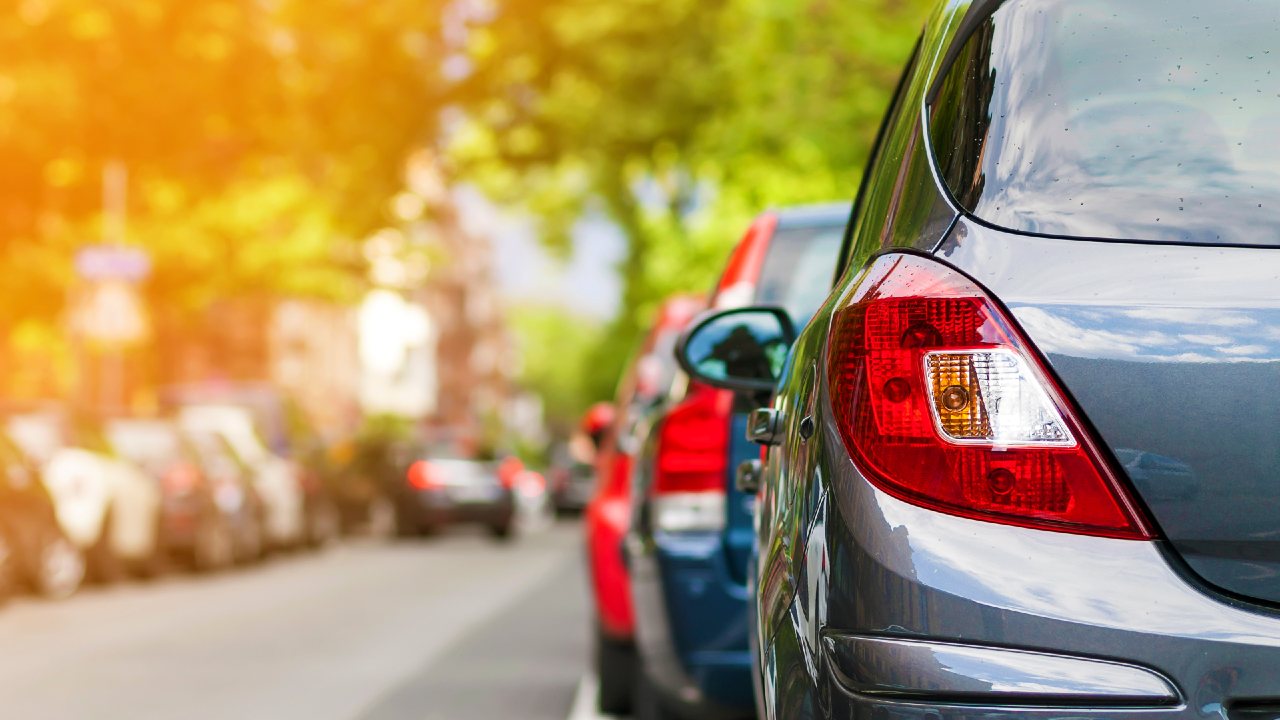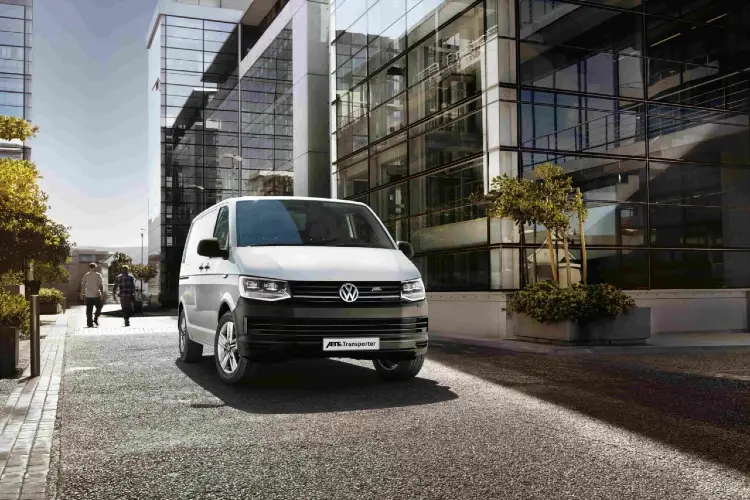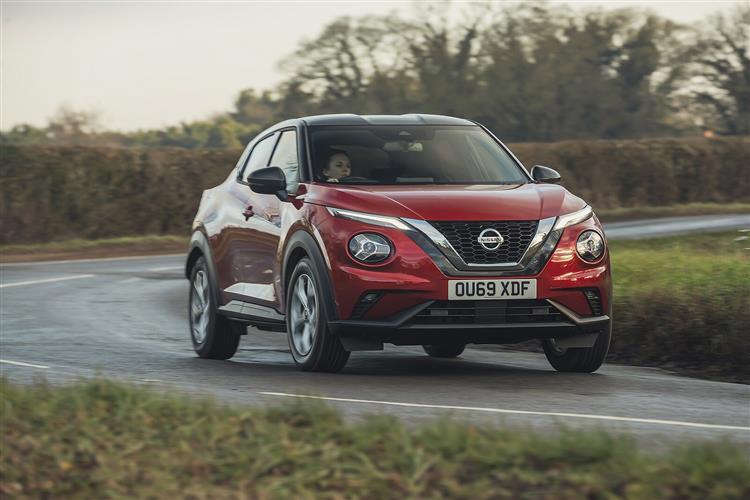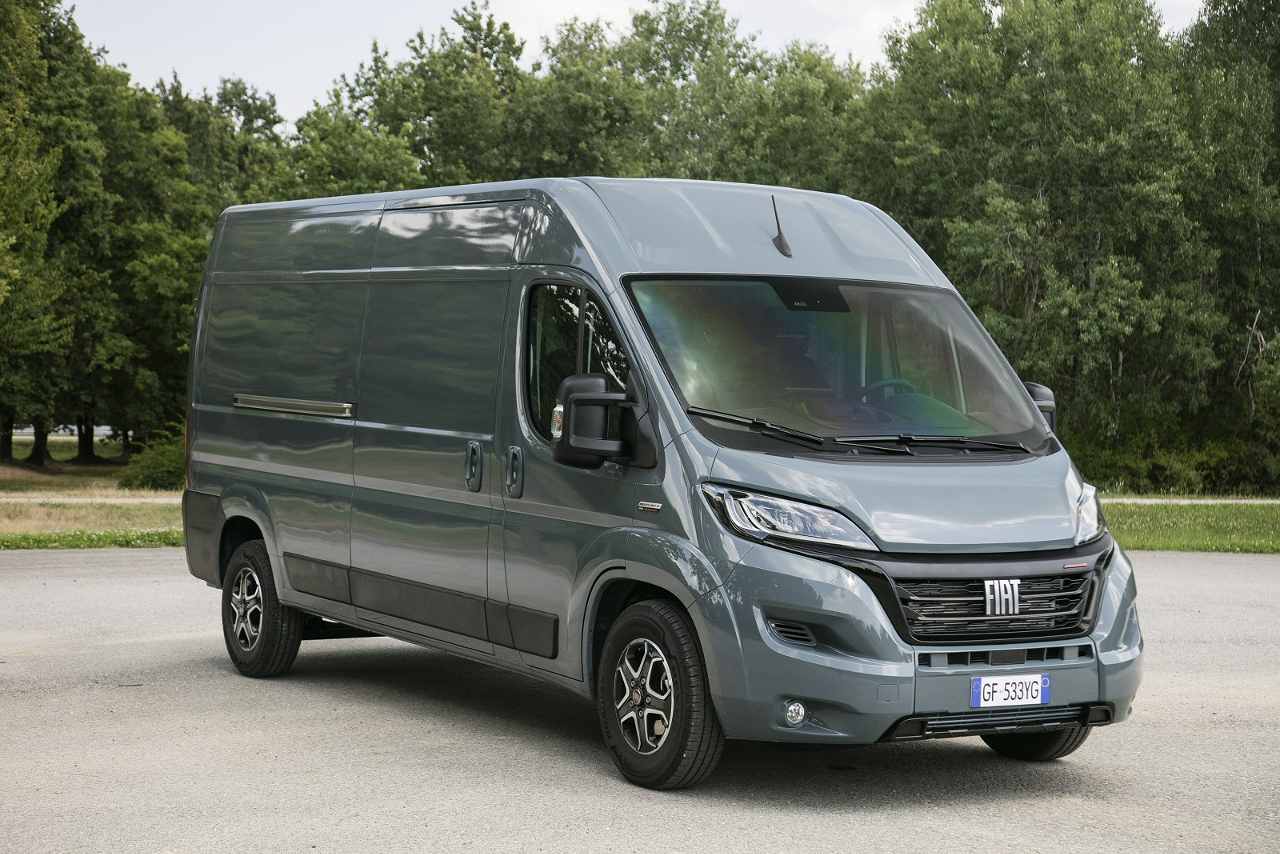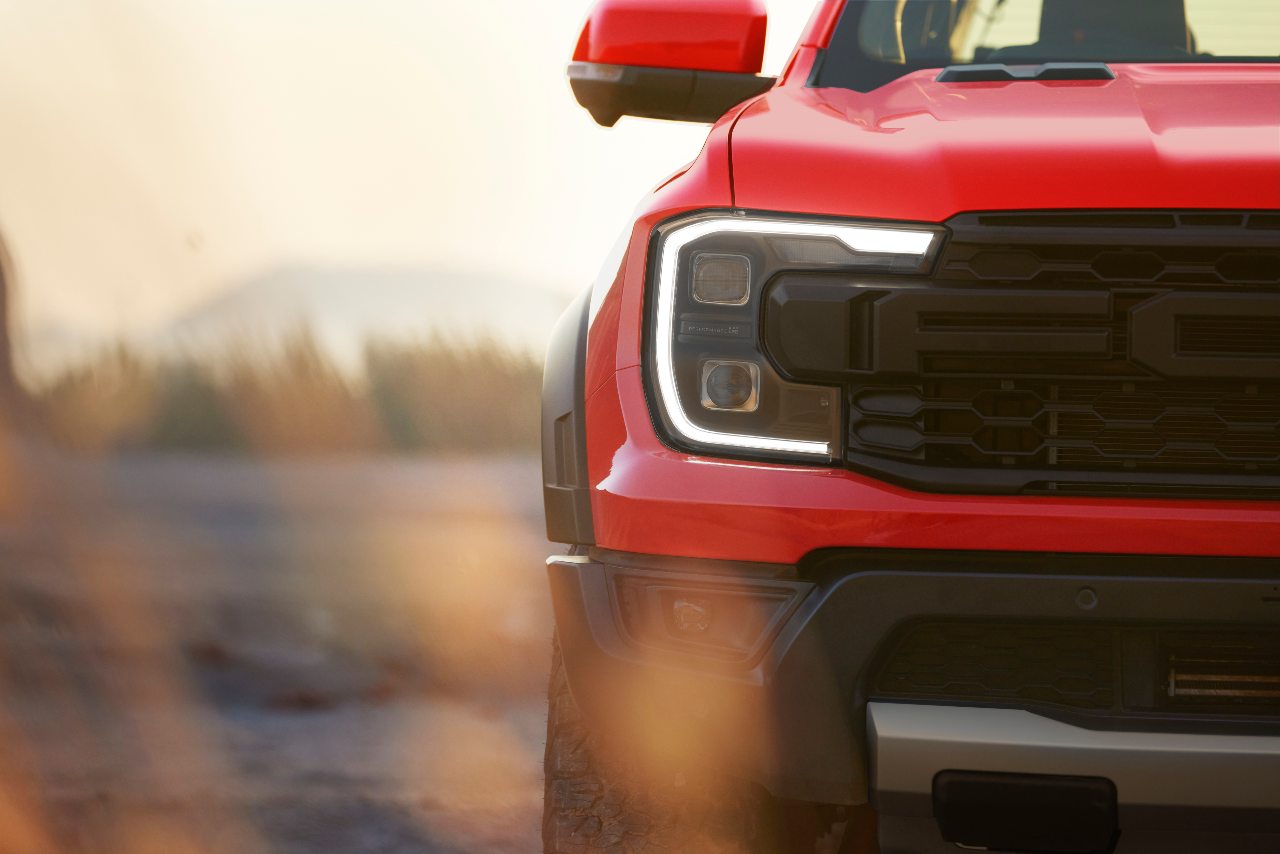Your Ultimate Guide To Road Tax / VED
Let's face it, no one likes paying tax and no matter which tax you're paying, it always seems to be a little more complicated than it needs to be. We want to make it all a bit easier by breaking out exactly what you have to pay for road tax in 2022 and why.
You'll find everything you need to know here, where we'll try to take the drama out of road tax! If you really want to avoid all the drama - leasing is the choice for you. All our van leases come with road tax included as standard in your monthly rentals, so it's not something you'll need to worry about. But if you do want to know more (or you just like reading about tax) here's everything we know...
Do I Have To Pay Road Tax?
Technically road tax doesn't exist, so if you're asking the road tax cost - the answer is it hasn't been around since the 1930s! Also, physical tax discs were phased out in 2015. Unfortunately, that doesn't mean you don't have to pay a tax. It just means what drivers pay these days is called Vehicle Excise Duty - commonly referred to as VED.
What Is Vehicle Excise Duty (VED)?
Vehicle Excise Duty (or VED) is the DVLA tax you pay to keep your vehicle on the road legally. It's calculated using a range of factors based, mainly, on how old your vehicle is, and the Co2 gasses it emits.
How Much Will It Cost To Tax My Van Or Car?
Basically, the more inefficient your vehicle is, the more VED you'll pay. This is one of the reasons it's so much more efficient to lease - as newer vehicles come out, their efficiency increases. Win-win!
The amount of this DVLA road tax, or VED, will change based on whether you have a van or a car and when the vehicle was originally registered. To find out exactly what you'll need to pay, see below where we've broken out all the components and explained the rules in (great) detail.
Everything You Need To Know About Taxing Your Van
The rules for taxing your van are a little different to the rules for taxing your car. They are also, thankfully, a lot simpler. So, when it comes to road tax for vans (VED), what you pay is based mainly on the age of your van, rather than C02 emissions - as it is with car tax (read more on car road tax below).
What Is Considered 'A Van' By HMRC?
Although the taxation class of your van will be visible online, it might be worth knowing for other reasons (such as company car tax (Benefit in Kind) and VAT) how HMRC decide what is a car and what is a van. Broadly speaking, the following are key criteria:
- Is your vehicle primarily constructed for the conveyance of goods or burden?
(In human speak, that means is it predominantly designed for carrying a load rather than carrying people)
- Is its plated gross vehicle weight - fully laden - not exceeding 3,500kg?
If the answer is yes, then according to HMRC, you've probably got yourself a van (or light commercial vehicle). But, beware - there are some grey areas, particularly surrounding ‘double cab’ vans and pickups where interpretations can vary. For example, if you have windows or seats to the rear of the driver, and the vehicle has a payload of less than 1000kgs, or the load area is smaller than the passenger cabin,then it is unlikely to be classed as a commercial vehicle, and taxation implications will extend beyond just
One potential pitfall is with 4x4 pickups such as the Ford Ranger or Mitsubishi L200. They are designed to have a payload a little over 1 tonne to ensure they qualify as a commercial vehicle. But, if you put a heavy load compartment cover on, this is treated as part of the base vehicle (not payload), so the truck could potentially now have a payload of under 1 tonne, with crucial taxation implications.
So, let's have a look at the van road tax you'll need to pay.
Van / Light Commercial Vehicle Tax Costs For 2021
Maybe the reason van tax is far simpler than car tax is that it hasn't changed all that much in quite a while. It's also mostly based on the vehicle's age but there are some slight variations for older vans based on emissions standards.
Vans (tax class 39) up to 3500kg GVM registered after 1/3/01: £290 Euro4 vans (tax class 36) registered between 1 March 2003 and 31 December 2006: £140 Euro5 vans (tax class 36) registered between 1 January 2009 and 31 December 2010: £140 Electric Vans: £0
If you have a company van, you'll have to pay personal (income) tax on the van, but only if you use it for private use. This tax is called the Van Benefit Charge.
It's important to clarify whether you use your van for private use which dictates whether you pay the tax. Private use is defined as use for anything other than your work commute (although a quick stop off to get a coffee or a newspaper is still counted as non-private use).
The Van Benefit Charge 2021/2022
The Van Benefit Charge is an annual benefit in kind tax. For vans, this cost is fixed (rather than based on C02 emissions). The van tax benefit in kind is currently £3,600 - meaning you are taxed on this amount.
-
If you pay 20% tax, you'll pay £720 a year.
-
But if you pay the higher tax rate of 40%, you'll pay £1440 a year.
Company Van Tax For Electric Vans
If your company van is electric and you use it for private use, the great news is that in 2022/23 you’ll have no Van Benefit Charge.
Will I Have To Pay Company Van Tax On Pool Vans?
As pool cars and vans are not seen as a 'benefit', these are not taxed, so you won't have to pay the Van Benefit Charge on these. But remember, your employer will need to prove the cars are pool cars and shared by employees for business reasons only.
What Are The Company Tax Rules On Pickup Trucks?
Simply put, the same rules apply for pickup trucks as they do for vans!.
Paying Tax On Employer Supplied ‘Free’ Fuel
Again, you'll only need to pay tax on fuel if you use your van for private use. If you do this, your yearly fuel benefit is taxed as a benefit in kind. For the 2022/23 tax year the amount is £688.
-
The tax on this if you're a 20% taxpayer is £138.
-
The tax is £276 if you're a 40% taxpayer.
Do I Need To Pay Company Van Tax If I'm Self-Employed?
In a word, no. If you're self-employed you won't need to pay the Company Van Tax. Woohoo!
Everything You Need To Know About Taxing Your Car
To find out how much car tax you'll need to pay, first you need to know when it was registered. There were different rules introduced in 2001 and 2017, so it's all about whether it was registered before 2001, between 2001 and 2017 or after 2017.
How Much Will I have to Pay for Car Tax in 2022?
Road Tax (VED) Costs For Cars Registered Before 1/3/01
If your car was registered before 1 March 2001, the rules are much simpler and it's only really about the size of your engine.
-
For cars with an engine size greater than 1,549cc you'll pay £295 per year.
-
For cars with an engine size of 1,549cc or less you'll pay £180 per year.
If your car was originally registered between 1/3/2001 and 31/3/2017, the rates you pay will be based on the C02 emissions. Your car will be in a banding from A to M. See below to calculate how much you'll need to pay each year
Road Tax (****VED) Costs For Cars Registered Between 1/3/01 And 31/3/17
Petrol cars tax class 48, and diesel cars tax class 49.
| Band and CO2 emission | Single 12 month payment | Single 12 month payment by Direct Debit | Total of 12 monthly instalments by Direct Debit | Single 6 month payment | Single 6 month payment by Direct Debit |
|---|---|---|---|---|---|
| A: Up to 100g/km | £0 | £0 | N/A | N/A | N/A |
| B: 101 to 110g/km | £20 | £20 | £21 | N/A | N/A |
| C: 111 to 120g/km | £30 | £30 | £31.50 | N/A | N/A |
| D: 121 to 130g/km | £135 | £135 | £141.75 | £74.25 | £70.88 |
| E: 131 to 140g/km | £165 | £165 | £173.25 | £90.75 | £86.63 |
| F: 141 to 150g/km | £180 | £180 | £189.00 | £90.75 | £94.50 |
| G: 151 to 165g/km | £220 | £220 | £231.00 | £121.00 | £115.50 |
| H: 166 to 175g/km | £265 | £265 | £278.20 | £145.75 | £139.13 |
| I: 176 to 185g/km | £290 | £290 | £304.50 | £159.50 | £152.25 |
| J: 186 to 200g/km | £330 | £330 | £346.50 | £181.50 | £173.25 |
| K*: 201 to 225g/km | £360 | £360 | £378 | £198 | £189 |
| L: 226 to 255g/km | £615 | £615 | £645.75 | £338.25 | £322.88 |
| M: Over 255g/km | £630 | £630 | £661.50 | £346.50 | £330.75 |
Alternative fuel car tax class 59.
| Band and CO2 emission | Single 12 month payment | Single 12 month payment by Direct Debit | Total of 12 monthly instalments by Direct Debit | Single 6 month payment | Single 6 month payment by Direct Debit |
|---|---|---|---|---|---|
| A: Up to 100g/km | £0 | £0 | N/A | N/A | N/A |
| B: 101 to 110g/km | £10 | £10 | £10.50 | N/A | N/A |
| C: 111 to 120g/km | £20 | £20 | £21 | N/A | N/A |
| D: 121 to 130g/km | £125 | £125 | £131.25 | £68.75 | £65.63 |
| E: 131 to 140g/km | £155 | £155 | £162.75 | £85.25 | £81.38 |
| F: 141 to 150g/km | £170 | £170 | £178.50 | £93.50 | £89.25 |
| G: 151 to 165g/km | £220 | £220 | £231.00 | £121.00 | £115.50 |
| H: 166 to 175g/km | £255 | £255 | £267.75 | £140.25 | £133.88 |
| I: 176 to 185g/km | £280 | £280 | £294 | £154 | £147 |
| J: 186 to 200g/km | £320 | £320 | £336 | £176 | £168 |
| K*: 201 to 225g/km | £350 | £350 | £367.50 | £192.50 | £183.75 |
| L: 226 to 255g/km | £605 | £605 | £635.25 | £332.75 | £317.63 |
| M: Over 255g/km | £620 | £620 | £651 | £341 | £325.50 |
Road Tax (VED) Costs For Cars Registered Between From 1/3/17 onwards
In 2022, the rules for car tax changed again. The main change here is that there is now a difference in the cost for the first 5 years and the cost for the following years for cars with a list price of over £40,000.
Standard Rate:
| Fuel type | Single 12 month payment | Single 12 month payment by Direct Debit | Total of 12 monthly payments by Direct Debit | Single 6 month payment | Single 6 month payment by Direct Debit |
|---|---|---|---|---|---|
| Petrol Or Diesel | £165 | £165 | £173.25 | £90.75 | £86.63 |
| Alt Fuel Car | £155 | £155 | 162.75 | £85.25 | £81.38 |
Vehicles with a list price of more than £40,000
You have to pay an extra £335 a year if you have a car or motorhome with a ‘list price’ (the published price before any discounts) of more than £40,000. You do not have to pay this if you have a zero emission vehicle. You only have to pay this rate for 5 years (from the second time the vehicle is taxed).
| Fuel type | Single 12 month payment | Single 12 month payment by Direct Debit | Total of 12 monthly payments by Direct Debit | Single 6 month payment | Single 6 month payment by Direct Debit |
|---|---|---|---|---|---|
| Petrol Or Diesel | £520 | £520 | £546 | £286 | £273 |
| Alt Fuel Car | £510 | £510 | £535.50 | £280.50 | £267.75 |
Which Vehicles Are Exempt From VED?
If your vehicle is exempt, you still have to tax the vehicle but you can then make a claim for exemption.
You may be eligible for exemption if:
-
You have a disability.
-
You are providing transport for disabled people.
-
You have a vehicle made before January 1979.
If you have a vehicle that's more than 40 years old, well, we'd probably suggest you look at leasing new from us, but you'll also be exempt from road tax.
How To Pay Your Road Tax (VED)
Unlike the days of having to go and queue at the post office to tax your vehicle there are now a range of ways to pay your VED. You can pay your road tax online, over the phone or at the post office.You’ll need different documentation if you don’t have a VED renewal letter from the DVLA
How To Tax Your Car Or Van Online
You can pay your car tax online whether you've got a new (used) vehicle or if you're re-taxing it. If it’s your existing vehicle, you’ll need the renewal letter, or the V5C to hand. If you've just got a new car or van, you'll need the 11-digit reference number from the green ‘new keeper slip’ that the previous owner should have given you.
*A V5C is what is commonly referred to as the ‘log book’ - a paper document that shows you as the registered keeper of a vehicle. The V5C will need to be in your name.
How to Tax A Car Or Van Without A V5C Document
If you haven't got the V5C document yet, you can use the 12-digit reference number from the New Keeper Slip you should have from the seller.
Once you have either of these, you can visit this website to pay your VED online (https://www.gov.uk/vehicle-tax).
Pay Your VED By Phone
If you'd prefer to speak to a human, you can contact the DVLA direct. Once again, you will need your V5C documentation or your New Keeper Slip (details of these in the section above) when you call.
You can call the DVLA direct on the following number 0300 123 4321 (call charges may apply).
Pay Your VED At The Post Office
You can also pay your VED at the Post Office, although it will have to be a Post Office that specifically deals with vehicle tax. To find out which branches deal with this service you can use their branch finder here: https://www.postoffice.co.uk/branch-finder
If you do go to the Post Office to pay this, you'll need your V5C certificate or your New Keeper Slip. You may also need an MOT test certificate and proof of insurance.
What Does Sorn Mean?
SORN stands for Statutory Off-Road Notification and you'll need to 'make a SORN' when it will no longer be on the road so it won't need tax or insurance. If it's not being driven on the road and is parked on private land you can make a SORN. Similarly, If you don't have tax or insurance you will also need to make a SORN, and, obviously, the vehicle can not be used or parked on a public road.
If you don't have tax or insurance because you're not using your vehicle, but you have not applied for a SORN, you could be fined.
How To SORN My Car Or SORN My Van?
To register a vehicle as SORN, you need to tell the DVLA that you're taking your vehicle off the road. There are several ways to make a SORN - all detailed below:
SORN A Car Online / SORN A Van Online
You can SORN your car or van online here (https://www.gov.uk/make-a-sorn) you'll just need to choose when you want to register the vehicle off-road. If it's immediately, you'll need your V5C logbook and the 11-digit number from this. If you want to do it from the first day of the following month, you'll need to use the 16-digital number from your V11 vehicle tax reminder letter.
SORN A Car / Van By Phone
You can SORN your car or van by calling the DVLA direct on 0300 123 4321.
SORN A Car / Van By Post
If you would like to SORN your vehicle by post you will need a V890 application form which can be found here https://www.gov.uk/government/publications/v890-statutory-off-road-notification-sorn. This will need to be sent to DVLA, Swansea, SA99 1AR.
What Happens To My Vehicle Tax When I Buy Or Sell A Vehicle?
If you're buying or selling a vehicle, your tax is not automatically transferred. Once you let the DVLA know that you've sold, your vehicle tax will be cancelled, and you should be given a refund of any remaining tax. The new owner will then need to tax the vehicle again in their name.
And that's it, your comprehensive (and might I say riveting) guide to road tax. So, no excuse - don't forget to tax your vehicle! Or better yet, lease with us and we'll do it for you.

